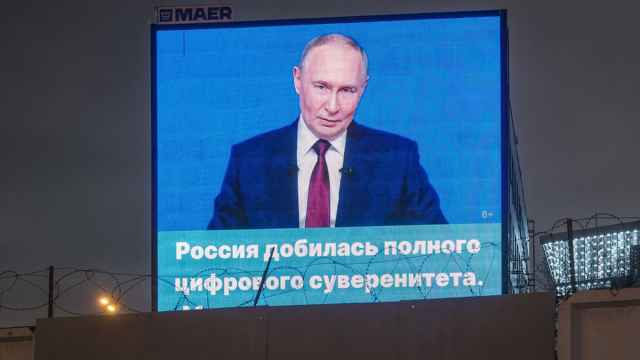WASHINGTON — Chuck Hagel, a nominee for U.S. secretary of defense, would be the first to enter the Pentagon as a public advocate for sharply reducing the number of U.S. nuclear weapons, possibly without equivalent cuts by Russia.
He supports an international movement called Global Zero, which favors elimination of all nuclear weapons.
That puts him outside the orthodoxy embraced by many of his fellow Republicans but inside a widening circle of national security thinkers — including President Barack Obama — who believe that nuclear weapons are becoming more of a liability than an asset and less relevant to modern security threats like terrorism.
“Senator Hagel certainly would bring to office a more ambitious view on nuclear reductions than his predecessors,” said Steven Pifer, a senior fellow at the Brookings Institution.
Pentagon Press Secretary George Little said Tuesday that Hagel does not support unilateral cuts “and, if confirmed, would not as secretary of defense. Suggestions to the contrary are inaccurate.”
The customary stance of defense secretaries in the nuclear age has been that the weapons are a necessary evil.
Hagel, 66, takes a subtly different view, one shared by Obama but opposed by those in Congress who believe that disarmament represents weakness and that an outsized American nuclear arsenal must be maintained as a counterweight to the nuclear ambitions of anti-Western countries like North Korea and Iran.
Hagel argues for doing away with nuclear weapons entirely, but not immediately and not unilaterally.
Hagel was co-author of a Global Zero report in May that proposed, as an interim step, a reduction of the U.S. arsenal to 900 weapons within a decade, with half of them deployed and the other half in reserve. That compares with a current U.S. stockpile of 5,000, of which 1,700 are deployed and capable of striking targets.
The report said these cuts could be made unilaterally if not negotiated with the Russians or carried out through reciprocal U.S. and Russian presidential directives. It called the unilateral approach “less good” but feasible. At a later stage, China and other nuclear weapons countries would be brought to the table for talks on further cuts.
Related articles:
A Message from The Moscow Times:
Dear readers,
We are facing unprecedented challenges. Russia's Prosecutor General's Office has designated The Moscow Times as an "undesirable" organization, criminalizing our work and putting our staff at risk of prosecution. This follows our earlier unjust labeling as a "foreign agent."
These actions are direct attempts to silence independent journalism in Russia. The authorities claim our work "discredits the decisions of the Russian leadership." We see things differently: we strive to provide accurate, unbiased reporting on Russia.
We, the journalists of The Moscow Times, refuse to be silenced. But to continue our work, we need your help.
Your support, no matter how small, makes a world of difference. If you can, please support us monthly starting from just $2. It's quick to set up, and every contribution makes a significant impact.
By supporting The Moscow Times, you're defending open, independent journalism in the face of repression. Thank you for standing with us.
Remind me later.





